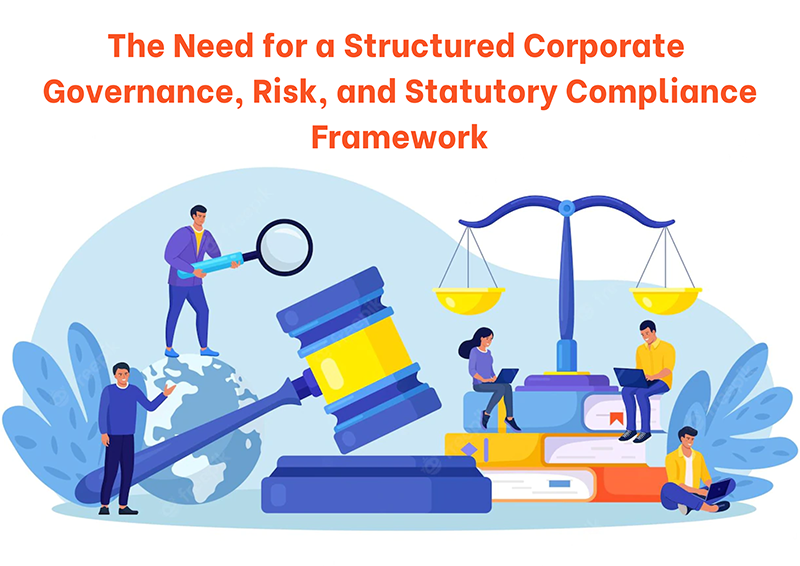[vc_row][vc_column][vc_column_text]Intro
In addition to nurturing your business and achieving expansion, following a set of proven practices that run across your organization at different levels is crucial. It helps to enhance your company’s principled performance while mitigating compliance risk. Statutory governance, risk management, and corporate governance are the three major elements of a modern business.
Statutory compliance: In the human resource management parlance (associated with payroll management), statutory compliance is the specific legal structure within which a business organization must perform processes while managing its employees.
The significance of statutory compliance: Closely related to several labor and employment rules and laws in India, statutory compliance is mandatory for all business enterprises. Non-compliance with such rules and regulations may lead to legal troubles such as fines or penalties and, sometimes, even worse consequences. Hence, it is crucial for companies that operate in India to have a clear understanding of the different labor and taxation laws prevailing in India. Statutory compliance service agencies help to mitigate compliance risks.
Compliance risk: A company’s possible exposure to legal liability and other consequences that result from failure to adhere to rules and laws associated with statutory compliance is the compliance risk.
The compliance risk management process helps identify, assess, and avoid potential losses that might arise from an organization’s non-compliance with the stipulated laws, standards, and policies. Appropriate risk management warrants the successful accomplishment of the company’s objectives through proper business analyses and adherence to the expected compliance norms.
Corporate governance: Corporate governance covers a business’s institutional and social aspects. It is the system through which business enterprises are guided and managed. Governance influences how business goals are set, risks are monitored and evaluated, and a company’s internal performance is assessed and optimized.
Effective and strong governance ensures cultivating company culture such as integrity, thus leading to organization toward positive performance. This increases the individual’s accountability and helps avoid mistakes. A company with solid corporate governance sends the right signals to the market, showing that the organization is well-managed, with a system in place to safeguard the interests of all its stakeholders.
The Key Benefits of Having a Governance, Risk, and Compliance Framework in Place
- Ensuring governance helps entrepreneurs to eliminate penalties associated with non-compliance. This translates into savings.
- It is desirable to predict risks and avoid mistakes even before they occur. It helps to bring down expenditure related to compliance issues.
- Powerful governance, risk, and compliance strategy warrants reduced data silos within an organization. Transparency and cross-functioning are encouraged; data sharing streamlines processes.
- Improved operational efficiencies result in streamlined business processes. Well-defined governance, risk, and compliance frameworks act as the base over which a unified, robust operational strategy can be built.
- A holistic corporate governance and compliance framework facilitates the creation of a controlled environment, resolving short-and long-term risks.
- The framework allows management to access and control relevant content and understand the potential challenges and risks.
- Business owners can align their objectives with their business vision and values, thus facilitating better decision-making.
Robust, business-specific governance, risk, and compliance framework must be tailored to your unique needs to mitigate the various risks involved in the business. Outsourcing the HR services and Compliant process can help organizations get timely and reliable solutions.
Wrap-up
Within a business organization, the different departments are required to act in line with the universally accepted principles of governance, risk, and compliance. Join hands with the right outsourcing partner to achieve statutory compliance while eliminating compliance risks.[/vc_column_text][/vc_column][/vc_row]









